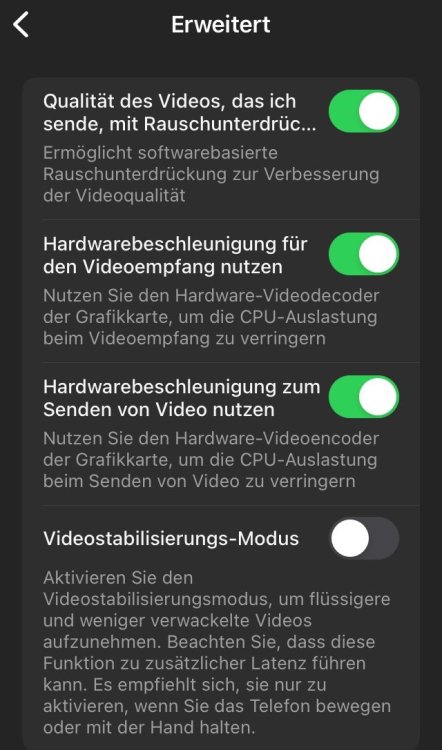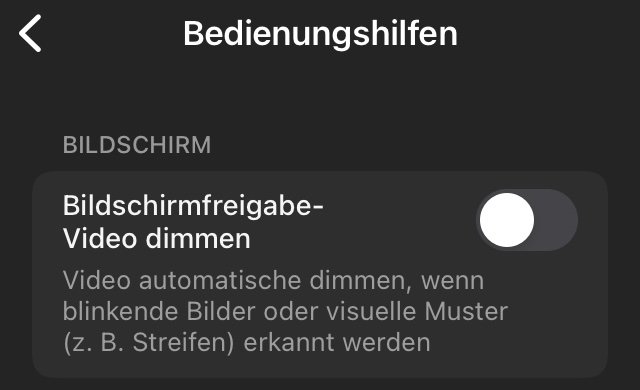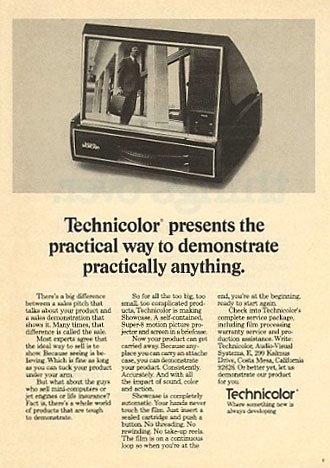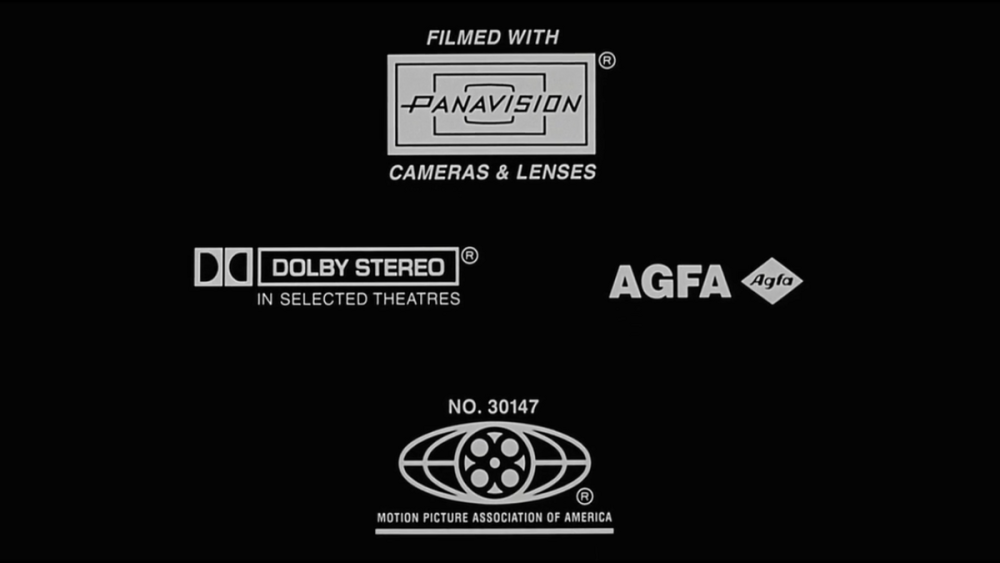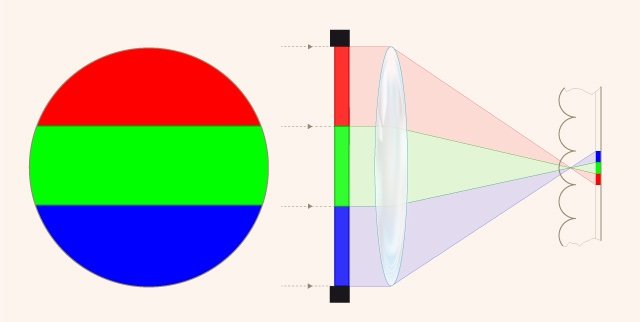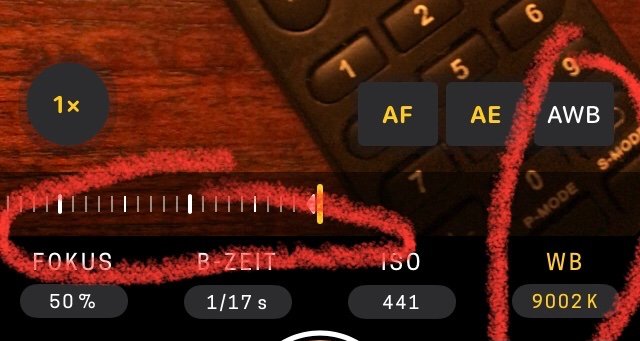-
Posts
580 -
Joined
-
Last visited
Everything posted by Joerg Polzfusz
-

The influence of video game style on filmmaking
Joerg Polzfusz replied to Jon O'Brien's topic in General Discussion
Hi! Yes, the shaking, never on a tripod „pov“-camera is overused in many productions these days. But this trend isn’t caused by video games (as they don’t shake their virtual cameras). Instead, everyone is telling me that this is mimicking the „war reporter style“ (see footage shot in WWII, Vietnam-War,…).And it isn’t a new style in Hollywood, too, e.g. try to watch „Speed II: Cruise Control“ from 1997. IMHO in today’s productions, this is just a cost-saving thing: no need to buy/rent tripods/dollies/steadycams, no time (=money) spend on setting up tripods, laying out tracks, … (and later removing them). -

Was 9.5mm a European format?
Joerg Polzfusz replied to Daniel D. Teoli Jr.'s topic in Film Stocks & Processing
Other than using unperforated 35mm film and cutting it into three rows of 9.5mm, Double4.75mm or Super9.5mm, there are also devices that convert 16mm films into 9.5mm. -

Dark Information Unintentionally Revealed
Joerg Polzfusz replied to Stewart McLain's topic in Post Production
Hi! There are several options in Zoom that can be set by the sender and by the receiver: deshake, denoise, deflicker, … . (Screenshots from the German iPhone version) It’s hard to tell whether it was an incorrect setting on your or the organizer‘s side. -

Was 9.5mm a European format?
Joerg Polzfusz replied to Daniel D. Teoli Jr.'s topic in Film Stocks & Processing
A link to the former US Group of 9.5ers: https://web.archive.org/web/20111120225845/http://www.9-5usa.org/ -

Was 9.5mm a European format?
Joerg Polzfusz replied to Daniel D. Teoli Jr.'s topic in Film Stocks & Processing
Fresh films are made by CFA on a non-regular base: https://colorfilmsarchives.com/fr_FR/products/pack-pellicule-ektachrome-100d-9-5mm-30-m-developpement -

Was 9.5mm a European format?
Joerg Polzfusz replied to Daniel D. Teoli Jr.'s topic in Film Stocks & Processing
Everything you need to know about Pathe‘s formats: http://pathefilm.uk/ -
There are many small details that could spoil the idea of using sunset-takes for sunrise-scenes. E.g. at sunset, there’s usually more traffic than at sunrise. And cars, trains, busses, trucks… will turn off their lights at sunrise and on at sunset. (Same is true for domestic lighting, lighthouses, streetlights, aviation obstruction lighting, …) At sunrise, plants will open their blossoms. And they will close them at sunset. Sometimes, you can guess the cardinal direction by small details: A compass that is accidentally shown. Flags, plants, hairs … that move in the wind … (in Europe: usually westerly wind). In Europe, trees that are standing alone, usually have more moss on the northern and western side. Etc.. Not to mention that you have to ensure that you don’t accidentally film the raising/pulling down of a flag. And don’t shoot paperboys, postmen, bakers … that start their work. Especially in winter, pupils might already be on their way to school at sunrise. Etc.
-

What kind of 8mm film cartridge is this?
Joerg Polzfusz replied to Daniel D. Teoli Jr.'s topic in Film Stocks & Processing
It looks like Technicolor produced several different projectors for these cartridges: Standard8, Super8, sound, … https://www.filmkorn.org/super8data/database/projectors_list/projectors_technicolor/projectors_technicolor.htm E.g. the model „1200 X-2“ even supported two different cartridge sizes. -

What kind of 8mm film cartridge is this?
Joerg Polzfusz replied to Daniel D. Teoli Jr.'s topic in Film Stocks & Processing
It’s a Technicolor one. Most likely the one mentioned in these two videos: -
Hi! Have you been using the internal filter (in some cameras, these filters started to rot and to have tiny holes)? Or did you stop looking through the viewfinder without blocking it? Otherwise (as you claim that it’s not visible in the viewfinder), I would suspect that there’s something between mirror and gate. (When it’s also visible in the viewfinder, I would suspect some problems with the mirror (dirt, scratches, defect coating)… Good Luck!
-
Hi! I don’t know why you are writing this. There have been two different films sold as „PlusX“ for Super8. I have provided the technical data pdfs from Kodak for both films as you didn’t tell which film you‘ve got. Both PDFs contain enough information for correct exposure as negative. But the main question remains: Why do you want to cross-process it at all? You‘ll very likely have some loss of sensitivity due to the age. And then you will have another, much greater loss due to the cross-processing.
-
Hi! At first, you will have to find out whether it’s PlusX 7276 or PlusX 7265. 7276 was Iso 40/17º Tungsten and Iso 50/18º Daylight 7265 was Iso 80/20º Tungsten and Iso 100/21º Daylight. (No filters used in all four cases.) Depending on the age and storage, you’ll have to overexpose it a little bit. As a rule of thumb, you might want to start your tests with 1/3rd f-stop per decade when stored in a fridge. When stored in a freezer for less than twenty years, you might even have no loss. I have no experience in processing PlusX as negative. For its „big brother“ (TriX), Kodak states: „When processed as a reversal film, the resulting positive can be used for projection or for duplication. If processed as a negative material by conventional methods, the film will yield satisfactory results, although there will be some loss in speed and an increase in granularity.“ Is there a specific reason, why you want to process it as negative? When manually metering, remember to take the light loss into account that is caused by the camera (semi-transparent beam splitter, accidentally activated Wratten-85-filter, …). Good luck!
-

A 3D Printable Cartridge To Fit Fuji Single 8 Cameras
Joerg Polzfusz replied to christophernigel's topic in Super-8
That is the reason for a very long readme.md from Jenny as part of the project. Yes, the downside is that you have to read and think before doing something. This might indeed become too complex for most users. -

A 3D Printable Cartridge To Fit Fuji Single 8 Cameras
Joerg Polzfusz replied to christophernigel's topic in Super-8
Then better take a look at the project - there’s a clear notice that it will not work with most home printers (especially the cheap ones) and that it’s recommended to use a professional printing service instead. -

A 3D Printable Cartridge To Fit Fuji Single 8 Cameras
Joerg Polzfusz replied to christophernigel's topic in Super-8
We’ll see. I know someone who is going to test them soon. -

A 3D Printable Cartridge To Fit Fuji Single 8 Cameras
Joerg Polzfusz replied to christophernigel's topic in Super-8
The video is from April 7th, 2023, the files on GitHub are V1.1 as released in January 2024. The cartridges on GitHub also differ from the ones shown in the video… …the only obvious flaw is the lack of the two „noses“ (the protruding things close to the film gate where the position of the upper „nose“ is used to inform certain cameras about the film‘s sensitivity, e.g. Fujica AX100). So the GitHub files will only work for cameras that use the „arc“ for the sensitivity. -

A 3D Printable Cartridge To Fit Fuji Single 8 Cameras
Joerg Polzfusz replied to christophernigel's topic in Super-8
You have to read the instructions: “I suggest very strongly that you spray the outside of both cartridge bottom and lid with a good quality matt black paint.“ -

Cassavetes "Husbands" film stock?
Joerg Polzfusz replied to Rodrigo Menck's topic in Film Stocks & Processing
- 7 replies
-
- cassavetes
- kemper
-
(and 2 more)
Tagged with:
-

Cassavetes "Husbands" film stock?
Joerg Polzfusz replied to Rodrigo Menck's topic in Film Stocks & Processing
IMDB only lists the used cameras, but also no details about the used filmstocks: https://m.imdb.com/title/tt0065867/technical/?ref_=tt_spec_sm What about 3M/GAF/DuPont? Did they still produced films in 1970?- 7 replies
-
- cassavetes
- kemper
-
(and 2 more)
Tagged with:
-

Transferring vintage Kodacolor lenticular film
Joerg Polzfusz replied to Todd Ruel's topic in Post Production
Okay, then please ignore my idea from the previous post. 😉 However one question remains: Is a scanner able to properly work with the non-flat surface of the film at all? Or will this cause stray-lights/flares/…? -

Transferring vintage Kodacolor lenticular film
Joerg Polzfusz replied to Todd Ruel's topic in Post Production
Hi! Can’t you simply add an overlay of colored stripes and then squeeze the result so that the three neighboring stripes overlap? Or is some information missing as the film‘s surface isn’t flat? -

Any iPhone camera apps that allow WB adjustment?
Joerg Polzfusz replied to Patrick Cooper's topic in Off Topic
Hi! Try „Hydra“. It allows you to turn off the AWB and to manually select something between 2000K and 9000K. It definitely has got many, many restrictions in the free version. But at least you can play around with the app to see whether it suits your needs or not. -

Angular 'shadow' in frame. Any ideas on what's causing it?
Joerg Polzfusz replied to Chris Erickson's topic in Super-8
Could this be some coating issue (lens, filter or semitransparent mirror/beam splitter)? As it’s close to the perforation, it might be partially outside the „projectable area“ - and the viewfinder might show an even smaller area or might display some additional information in this area (f-stops, film transport indicator, …) that distracts from the problem.




